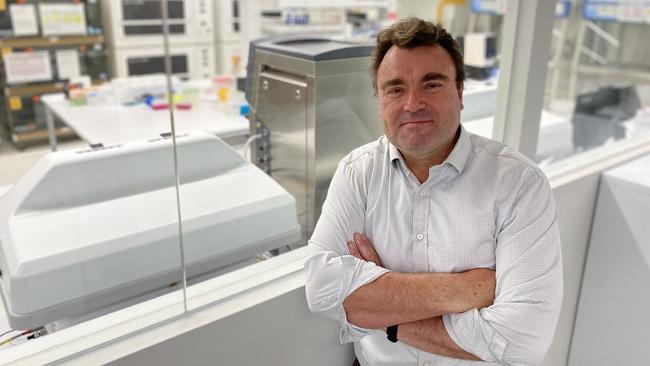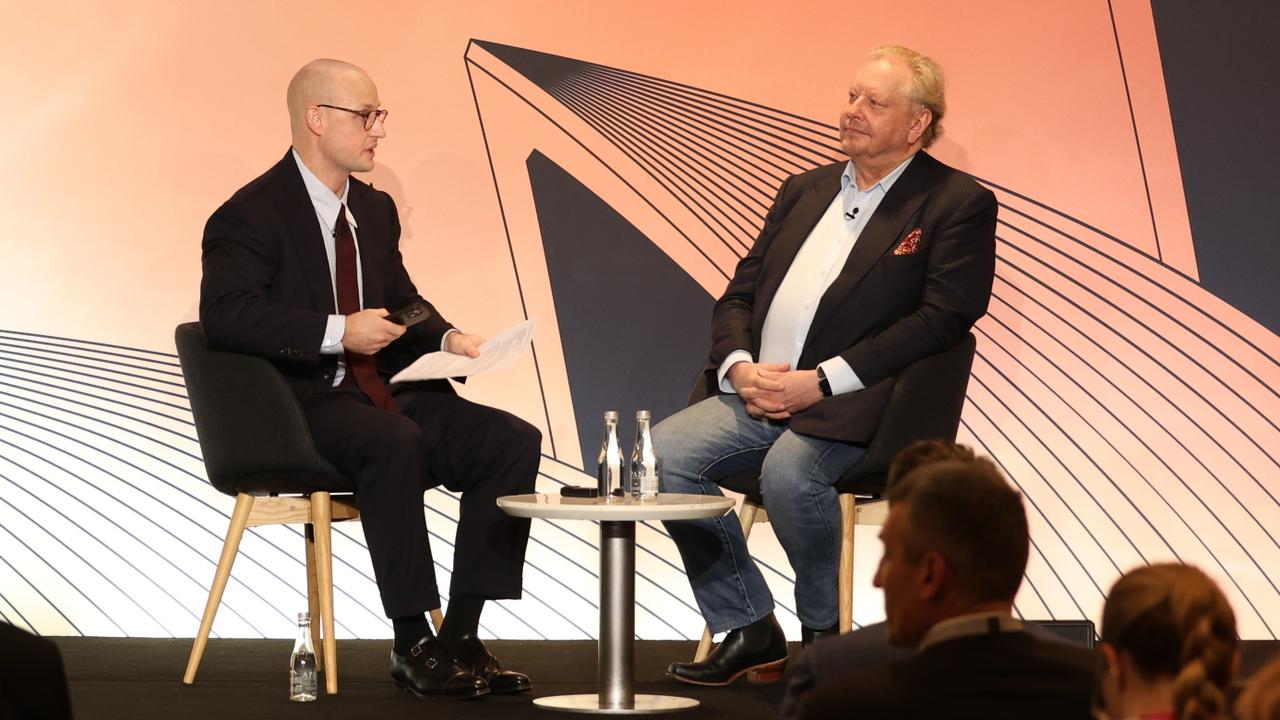CSL unleashes new tech to tackle serious diseases
Australia’s biggest health company has a new weapon to accelerate its search to find the next blockbuster drugs in its $1bn annual research and development program.

Australia’s biggest health company CSL is harnessing artificial intelligence to accelerate drug development and develop more personalised and effective treatments for a range of serious diseases.
The $147.3bn company has revealed how it is using the much-hyped technology to help unearth more blockbuster drugs in its $1bn-plus a year research and development program.
CSL vice-president of research Michael Wilson said AI’s ability to rapidly draw insights from copious amounts of data was transforming drug development. “What’s really changing the pharma and biotech industry is that we have a lot more data to work with now. We have much better computing power,” Dr Wilson said.
“The industry is much more aware of how you need to organise that data and to be able to interrogate that data. That’s probably the biggest difference and why we are starting to see some significant changes in the way we do drug development.”
As well as guiding drug discovery – identifying the best compounds or eliminating those that are likely to fail – AI can also predict how much damage an infectious agent is likely to inflict. CSL says the time it takes to complete this process can be slashed from a year to just 10 seconds of a PhD student’s time.
“We know that if we don’t invest in this area, we’re going to end up a long way behind,” Dr Wilson said.
Rival vaccine maker Moderna has already joined forces with ChatGPT creator OpenAI to accelerate drug development, including using the technology to determine correct dosages during clinical trials. Moderna said the deal with OpenAI – announced in May – aimed to automate nearly every business department, from legal to research and development and manufacturing.
Crucially, Moderna chief executive Stephane Bancel said it would allow the company to launch 15 new products in the next five years – a move that would be impossible without AI.
“We focus very hard on trying to determine what are the drugs that are going to be the most effective for our patients. Insights as early as possible are really key to that because on average for every dollar in research it’s $10 in development, so they’re big decisions that you’re making,” Dr Wilson said.
“So any way you can move the needle on the probability of success, that’s a very important factor. You’re not wasting patients’ time and effort as well.”
Dr Wilson said AI could accelerate cancer treatments - although CSL is yet to embark on its own cancer program.
“The other area that is incredibly exciting is patient stratification, which is a fairly concise way of saying you’ve got the right drug for the right patient group. Cancer leads the way in this area.
“If you think about particular cancers, they are now characterised using particular biomarkers, not in the sense of which organ the cancer has come from but more in the genetic mutations that cancer possesses that will determine what the treatment regimen is going to be applied for that particular patient.
“Breast cancer is probably the easiest one to understand. Is it hormone-responsive or not hormone-responsive? Does it have particular biomarkers? The way that this works is that essentially what you need is to be able to access data – molecular data, biomarker data – from the patients that you’re interested in versus the people that don’t have the disease.”
Dr Wilson said once insights – which AI is able to quickly generate – are gleaned from that data, that then provides a potentially more effective treatment pathway.
“If we can tease out the patient groups which are going to respond to our drugs on the basis of those molecular understandings using AI or machine learning tools, then that’s a huge advantage, because, you can imagine, you go into your clinical studies, you can go into a targeted set of patients.
“When you launch your drug onto the market you could potentially have an associated diagnostic which will tell you that that’s going to work in this type of patient group. That’s where we see the power.
“For us in research, we use AI in a range of ways at the moment, but definitely in drug design, and then also in thinking about the patient groups that we want to go after and that we think where our drugs will have applications.
“AI is an emerging enabling technology finding great utility in applications across the biomedical sector, from rapid drug discovery to optimisation of drug manufacturing processes, accurate disease diagnosis, and AI-guided clinical trial recruitment and design.”
CSIRO is also exploring how AI can accelerate early drug discovery using its new $15m super computer, Virga, which Dell built. Lewis Blackman, who heads the drug discovery chemistry team, said this included disease target identification and the prediction and generation of new potential medicines.
“There is a need for making drug discovery faster and cheaper so that we can better respond to previously untreatable diseases and future pandemic threats, such as the rise of antimicrobial resistance,” Dr Blackman said.
“It is clear that the data quality is crucial for building accurate models, as is the computational infrastructure required for training them. CSIRO’s new high performance computer system, Virga, is the first deployment of its kind in Australia, designed to optimise AI workflows while also being power-efficient using direct liquid cooling.”




To join the conversation, please log in. Don't have an account? Register
Join the conversation, you are commenting as Logout